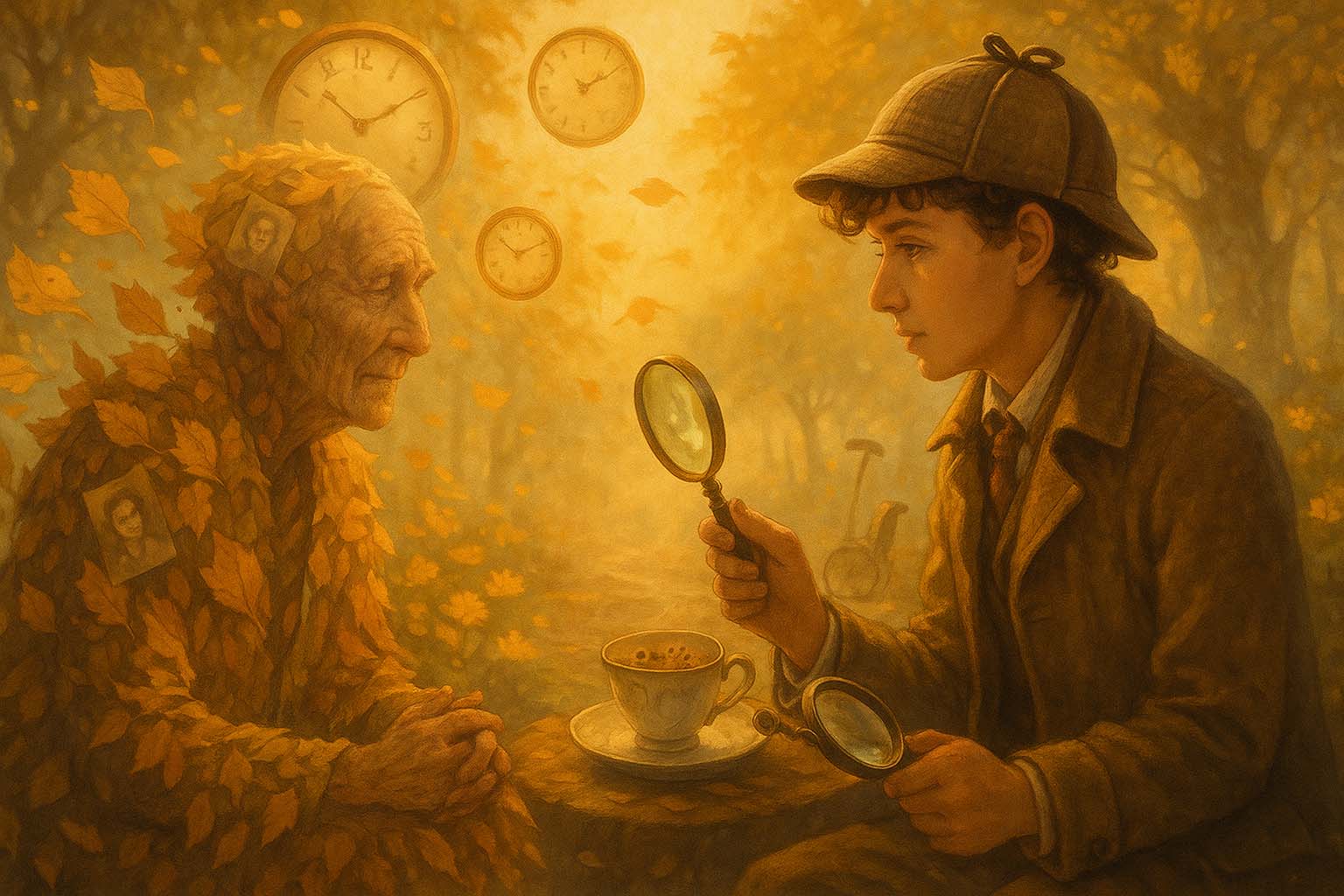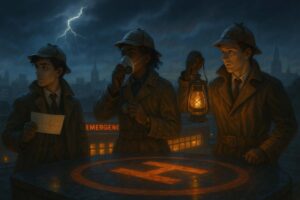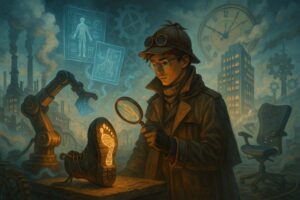
Geriatrics
- Posted by admin
- Categories Primary, Community & Continuity Care
- Date May 21, 2025
- Comments 0 comment
The Timekeeper’s Domain – Cracking the Cases of Age, Frailty, and Overlapping Stories
1. Introduction: The Scene of the Specialty
Step into the shoes of a Geriatric sleuth.
In the labyrinth of long lives, Geriatrics detectives work not with a single thread, but with entire tapestries of time. Their patients don’t come with one mystery—they arrive with many: woven across decades, marked by resilience and wear. Here, symptoms whisper rather than shout, and the clues are often buried beneath layers of adaptation, silence, or assumed inevitability. Welcome to a world where a fall is never just a fall, and a good detective always asks what lies beneath the surface.
2. Key Mysteries They Solve (Common Conditions)
These detectives specialise in solving cases involving:
- Delirium – a sudden fog that hides infection, medication mishaps, or pain.
- Falls & Frailty Syndromes – chronic conundrums woven from muscle loss, balance, and polypharmacy.
- Dementia – a slow unraveling that demands patient observation and family collaboration.
- Multimorbidity & Polypharmacy – complex cases requiring orchestration rather than action.
Each case demands not just a clinical eye, but a human one—watchful for dignity, story, and subtle shifts in function.
3. Their Trusted Tools & Techniques
Every detective has their kit—and in Geriatrics, tools may include:
- Functional Forensics – mobility assessments, ADL evaluations, and gait observations.
- Cognitive Clues – MMSE, MoCA, and drawing tests to reveal mental drift.
- Pharmacological Reviews – deep dives into medication lists, searching for the silent saboteur.
- Gentle History-Taking – often with caregivers, family members, or interpreters of memory.
Geriatrics is a practice of careful unlayering—where less is often more, and presence is the most powerful tool.
4. The Charms of This Field: Why It Captivates the Curious
- Deep Humanity: Every patient is a living archive of experience, survival, and grace.
- Holistic Reasoning: Mind, body, environment, and social context are all part of the case.
- Slow Medicine at Its Best: Thoughtful decisions, not rushed interventions.
- Continuity and Trust: Longitudinal care, collaborative planning, and end-of-life compassion.
This specialty is less about the disease, and more about the person living with it.
5. Challenges: The Toughest Cases They Face
- Diagnostic Dilemmas – Vague presentations, masked symptoms, and atypical signs.
- Emotional Complexity – Navigating grief, decline, family dynamics, and ethical questions.
- Cognitive Conflict – Balancing autonomy and safety in the face of risk.
- Systemic Friction – Limited resources, long waits, and fragmented support networks.
But the wise Geriatrician knows: the smallest functional gain can change a life.
6. Famous Cases and Hallmark Clues
- The “Classic Presentation” – A UTI presenting as sudden confusion and agitation.
- The “Zebra” – Normal pressure hydrocephalus misdiagnosed as dementia.
- The “Aha Moment” – Realising that stopping five medications was more life-saving than starting one.
7. Your Training Trail: How to Join the Investigation
To become a Geriatric detective:
- Develop a foundation in Internal Medicine—learn the patterns before they become patchworks.
- Cultivate patience, empathy, and skill in navigating uncertainty and family systems.
- Shadow experienced Geriatricians and learn to think in years, not just minutes.
- Embrace complexity: function over tests, person over protocol, meaning over metrics.
Whether in hospitals, homes, or hospices, Geriatrics is about making the final chapters count.
8. Final Words: The Signature of the Geriatrics Detective
Geriatric detectives are time-sensitive physicians in every sense of the word.
They decode not only what is wrong, but what matters now—working with decline, not against it, and choosing care over cure when needed.
In a world chasing quick fixes, they restore the art of listening, pacing, and honouring life as it is.
So if you believe that medicine is more than fixing, and that healing can happen without a cure—
then this is your station in the mystery of medicine.
You may also like

Emergency Medicine

Occupational Medicine

